Losing a limb is life-changing. But the right prosthetic can help you move forward with strength and confidence.
If you’re in Delhi, Gurgaon, or Noida and searching for a good prosthetic clinic, you’re in the right place. This guide will walk you through everything you need to know—where to go, what it costs, what to expect, and how to book an appointment.
We’ll keep it simple. No complicated words. Just helpful, real advice from people who understand what you’re going through.
Let’s get started.
Prosthetic Clinics Across Delhi NCR
Finding the Right Place Near You
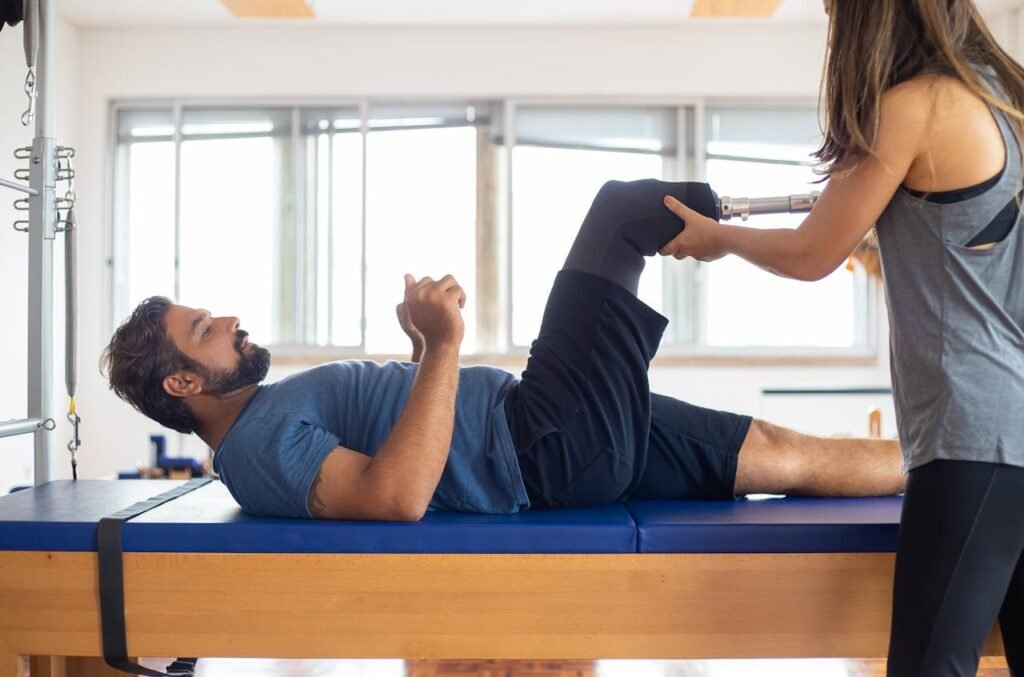
Choosing a clinic starts with knowing your options. In Delhi, Gurgaon, and Noida, there are trusted clinics that offer care, fitting, and follow-up. Each one has its own strengths—whether it’s advanced technology, long experience, or friendly service.
Let’s look closely at some standout clinics in each area to help guide your decision.
Delhi Prosthetic Clinics
Medica The Foot Clinic and Other Practo Listings
Medica The Foot Clinic in Patel Nagar is one of Delhi’s known prosthetic centers. They offer consultations for around ₹500 and are listed on Practo for easy booking. Other options in the area include D.S. Gautam’s clinic and Revolution Rehab in Rohini. These are convenient if you’re looking for reliable service close to home.
Clinics like these are helpful when you want quick advice, experienced staff, and simple scheduling.
Socket Healthcare Foundation
Socket Healthcare in Delhi combines modern tools with a calm, supportive team. They offer digital assessments and custom-made prosthetics. Most devices are delivered in two to four weeks, depending on the design. You can book both online and in-person appointments, which makes things flexible for busy families.
This is a great option if you’re looking for comfort, quality, and professional support under one roof.
Ottobock Delhi Clinic
Ottobock’s clinic in Patel Nagar is a well-known name across India and globally. They offer advanced prosthetics like the C-Leg 4 and other high-tech mobility aids. In addition to limbs, they provide braces and wheelchairs, making them a comprehensive mobility solution provider.
Ottobock is a great match for those who want cutting-edge solutions backed by global standards.
Gurgaon Prosthetic Clinics
Credence Prosthetic India
Credence Prosthetic in Gurgaon is rated highly by patients. They offer artificial limbs ranging from basic models to bionic hands and microprocessor knees. Patients often mention the warmth of the team and fair pricing. Their approach is hands-on and personal, giving each case the time it deserves.
It’s a smart choice for people who value quality work and human connection.
Instalimb India and Other Local Clinics
Instalimb India in DLF Phase V is a newer clinic but already popular. Their consultation fee is around ₹1,000. They focus on well-fitted, custom solutions and are available through Practo. Other clinics like The Rehab Street in Sector 50 charge about ₹500 and also offer good service with decent turnaround times.
These are great if you’re looking for quick, no-fuss service within your budget.
Mobility Solution Centre
This center has over 16 years of experience and operates across both Gurgaon and Delhi. They use 3D scanning for accurate fittings and offer a wide range of prosthetics—from basic limbs to advanced bionic options. They also offer budget-friendly solutions, which makes them a favorite among middle-income families.
If you want a balance of cost, tech, and experience, this is a dependable option.
Noida and Delhi NCR Clinics
PORC Prosthetic and Orthotic Rehabilitation Clinic
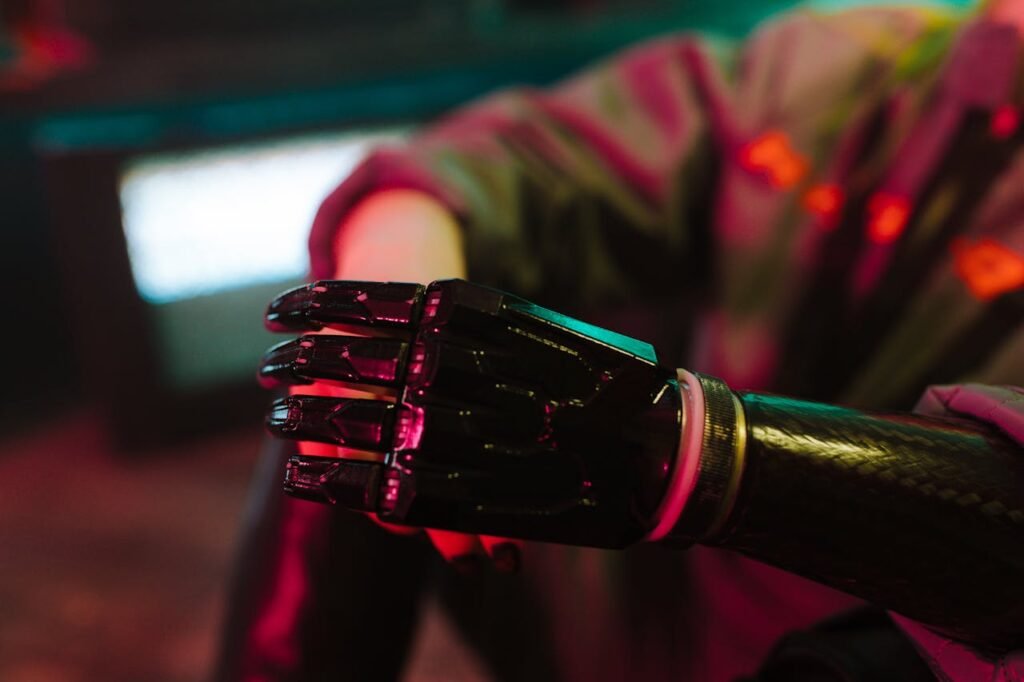
With nearly four decades of experience, PORC has built a name for offering personalized care and high-quality prosthetics. Located in Noida, the clinic uses digital scans and works with major hospitals across the city. They are known for their patient-first attitude and consistent results.
This clinic is a strong fit for anyone who values proven results and long-term support.
Medanta Institute of Medicine
Although Medanta is located in Gurgaon, it serves the wider NCR region. This large hospital offers prosthetic care within its rehabilitation unit. While it may not be a prosthetics-only center, its comprehensive setup is good for people who need ongoing medical support alongside prosthetic services.
It’s worth considering if you’re already undergoing other treatments at Medanta or want everything under one roof.
Cost and Coverage in Delhi NCR
Consultation Fees in the Region
Across Delhi NCR, consultation fees generally range between ₹300 and ₹1,200. Clinics listed on Practo, like The Rehab Street or Medica, charge on the lower end. Bigger names or those offering advanced scans and fittings usually charge higher. Choosing based on your budget and comfort level is important.
If unsure, call the clinic and ask what’s included in the first appointment. Some offer follow-ups as part of the fee.
Prosthetic Costs and What to Expect
Basic mechanical limbs like the Jaipur Foot are very affordable—costing around ₹3,700. These are ideal for everyday walking and general movement. But they don’t offer grip control or balance assistance.
More advanced prosthetics, including myoelectric arms, microprocessor knees, or 3D-printed limbs, can cost significantly more. These are usually priced upon request and may vary depending on material, functionality, and customization.
Many clinics are open to EMI options or partnerships with NGOs. It’s always a good idea to ask if they offer financial help or connect with social support programs.
How to Book a Prosthetic Appointment in Delhi NCR
Booking Through Online Platforms
The easiest way to book an appointment with a prosthetic clinic in Delhi NCR is through platforms like Practo. You can search by location, specialization, or even by the name of the doctor or clinic.
The process is simple. Just visit the website or app, search for “prosthetist,” and select your city or area—like Noida, Gurgaon, or Delhi. Most listings show consultation fees, available slots, and reviews from past patients.
Online booking also lets you avoid long wait times. Once you confirm your time, you’ll often get reminders by SMS or email. This is especially useful for people managing other health appointments or travel plans.
Calling or Walking In
If online booking isn’t for you, you can call the clinic directly. Most clinics are happy to help you over the phone and can give you guidance on what documents to bring.
Some smaller centers or independent prosthetists might not have online booking at all. In such cases, a phone call is the best way to learn about their availability, fees, and services.
Walking in is also an option at some places, especially during less busy hours. But it’s always better to call ahead, so you don’t waste time or travel far only to find the clinic closed or fully booked.
What to Expect During Your First Visit
The Initial Consultation
At your first appointment, the prosthetist will take time to understand your case. They’ll ask about your amputation history, daily habits, goals, and any medical concerns.
This is the moment to be open. Share details about your job, hobbies, and lifestyle. The more they know, the better they can help.
You’ll also get a chance to ask your own questions. Don’t be shy. Ask about types of prosthetics, costs, timelines, and follow-up care. A good prosthetist will explain everything in simple terms.
Physical Evaluation and Measurements
After the initial conversation, you’ll likely undergo a physical evaluation. This may include checking your residual limb, testing your muscle signals, and measuring your limb for socket fitting.
Some advanced clinics may use 3D scanners or digital imaging to get a precise mold. Others may take manual measurements or use casting materials to form a base.
This part is painless but important. It ensures the prosthetic fits well, stays comfortable, and supports your movement in the long run.
Discussion About Prosthetic Options
Once the measurements are done, the prosthetist will walk you through the available prosthetic options. They may show you samples, explain how each one works, and help you understand the pros and cons.
Whether you’re looking at a basic mechanical limb or an advanced bionic device, they’ll help you make a choice based on your body, needs, and budget.
At this stage, you’ll also get an idea of how long it will take to make your prosthetic. Some simpler limbs may be ready in a week. Custom bionic limbs can take up to a few weeks, depending on the design and technology.
The Fitting and Training Process
Fitting Your Prosthetic
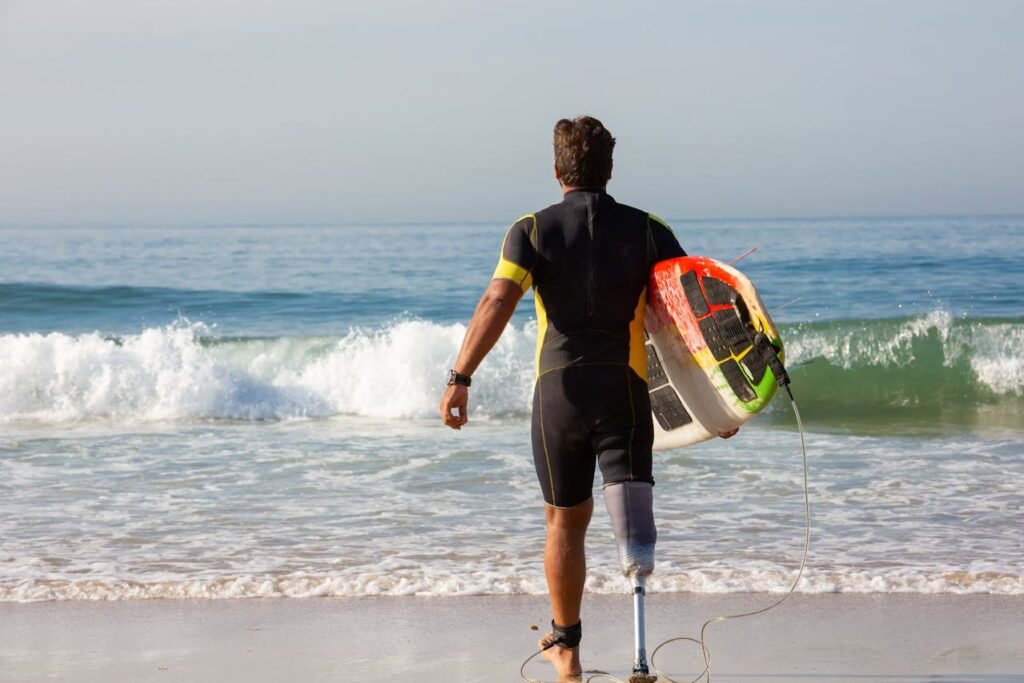
When your prosthetic is ready, you’ll come in for a fitting. The goal is to ensure it feels secure, doesn’t cause pain, and moves naturally with your body.
If it’s a leg prosthetic, you’ll likely be asked to walk, turn, or try steps. For an arm or hand prosthetic, you might try picking up objects or gripping everyday tools.
The prosthetist will look for pressure points, alignment issues, or movement limitations. They’ll make adjustments to the socket, straps, or limb length as needed.
This may take one or more sessions. Don’t worry if it doesn’t feel perfect at first—fine-tuning is part of the process.
Learning to Use Your New Limb
Getting a prosthetic is only the beginning. You’ll also need to learn how to use it. This training can be physical, emotional, and even mental.
If it’s your first prosthetic, your body will need time to adjust. You might feel tired after short walks or light tasks at first. That’s normal. Slowly, you’ll build stamina and confidence.
Most clinics offer basic training or refer you to physiotherapists. You’ll learn how to wear, remove, and clean your device, as well as how to move safely with it.
If you’re using a myoelectric or bionic prosthetic, you’ll also be taught how to control it using your muscle signals. This takes some practice, but many people start getting the hang of it within a few days.
Emotional Recovery and Family Support
The Mental Side of Recovery
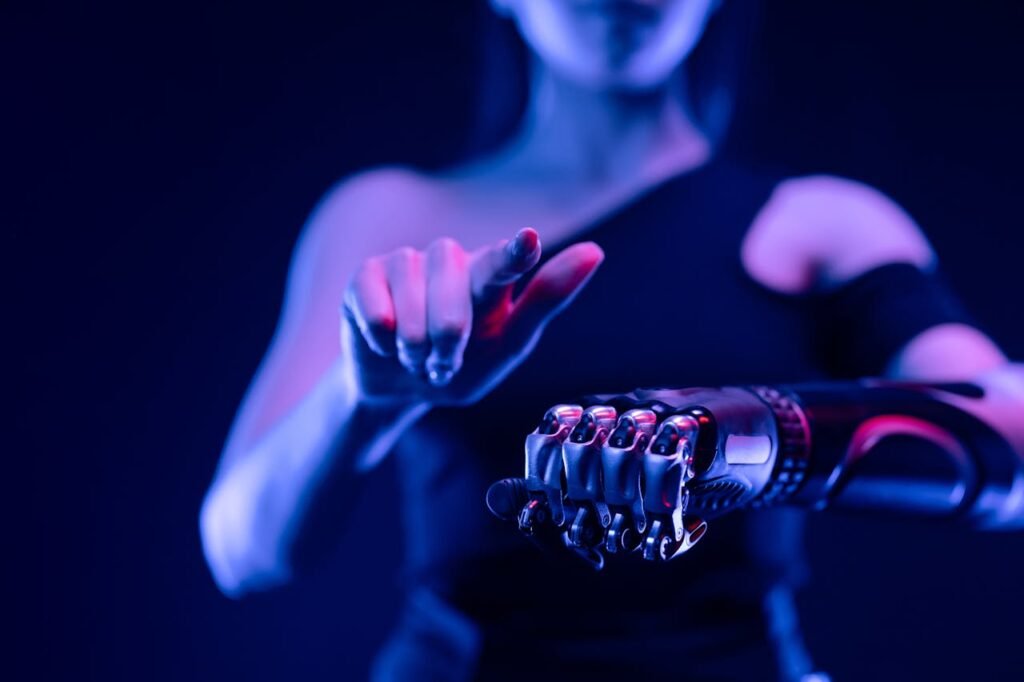
Losing a limb is not just a physical change—it affects your emotions, your self-image, and sometimes your relationships. It’s okay to feel overwhelmed.
Emotional recovery is just as important as physical healing. Don’t be afraid to ask for help. Some clinics offer counseling. Others can refer you to therapists or support groups.
Even talking to other prosthetic users can help. Their stories, tips, and encouragement often bring comfort and motivation.
Involving Your Family
Family members play a big role in your recovery. They can help with dressing, cleaning the limb, managing appointments, or simply cheering you on during rehab.
But they also need guidance. That’s why some clinics encourage family education. They’ll teach your loved ones how to support you without overstepping or making you feel helpless.
Recovery is easier when everyone feels involved and informed.
Long-Term Prosthetic Care and Support
Follow-Ups Are Just as Important
Once your prosthetic is fitted and you’ve learned how to use it, it’s not over. Follow-up care is just as important as the first fitting. These visits help check how your body is adapting, whether the socket still fits well, and if anything needs fixing or updating.
Over time, your body may change shape slightly. You might lose weight, gain muscle, or have small shifts in your limb. These changes can affect how the prosthetic feels and works. That’s why follow-up visits help prevent discomfort and ensure the device continues to support you well.
Don’t skip these appointments. They’re your chance to stay on track, adjust anything that feels off, and keep your mobility safe and strong.
Maintaining Your Prosthetic
Every prosthetic needs care. It’s like taking care of a car—it works best when you keep it clean, check it regularly, and fix small issues before they grow.
For leg prosthetics, you may need to check the sole or joint movements. For bionic hands, it’s important to follow charging routines, clean the sensors gently, and avoid exposure to water or extreme temperatures.
Most clinics will show you how to care for your device. If not, ask. Taking five minutes a day to clean and check your prosthetic can add years to its life.
If something breaks, avoid trying to fix it yourself. Go back to your clinic or prosthetist. Even a loose wire or misaligned joint can affect how the limb works.
Choosing the Best Clinic for You
What Really Matters When Choosing
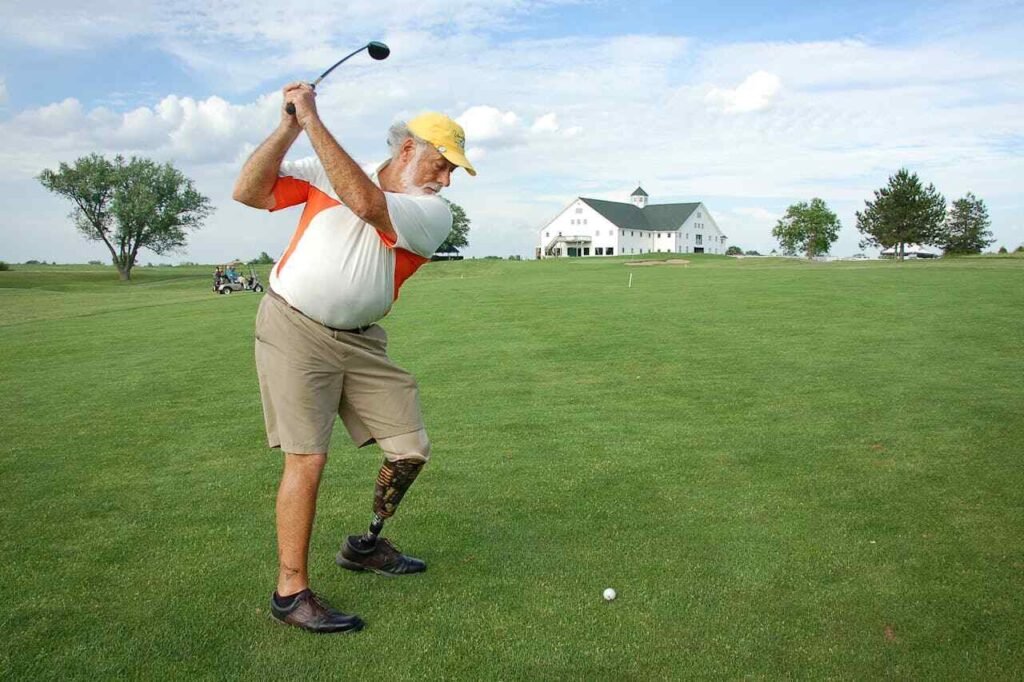
There’s no “one-size-fits-all” clinic. The best choice for someone else might not be the best for you. Start with your own priorities. Is it the price? Is it distance from home? Or maybe you’re looking for the latest technology?
Think about how much follow-up you’ll need. If it’s your first prosthetic, choose a clinic that offers training and emotional support. If you’re replacing an old limb, you might prefer faster service or newer materials.
Read reviews online, ask for recommendations, and talk to people who’ve been through the process. If a clinic offers a free consultation or demo, take it. Use that chance to get a feel for their approach and care.
Don’t Rush the Decision
It’s okay to visit more than one clinic before choosing. Just like you’d compare two schools or two job offers, comparing clinics helps you make the best decision for your future.
Pay attention to how they talk to you. Do they listen? Do they explain things clearly? Do they treat you with respect? These small signs often tell you more than fancy ads or big names.
You’re trusting them with your mobility. Take the time to choose wisely.
Real People, Real Stories from Delhi NCR
Meena’s Journey Back to Teaching
Meena, a 42-year-old schoolteacher from Noida, lost her left leg due to a medical complication. She feared she’d never return to the classroom. But a clinic in South Delhi helped her get a lightweight prosthetic leg with a natural walking motion.
With regular rehab and support, Meena was back on her feet in three months. Today, she stands in front of her students again—stronger and more confident than ever.
She says, “I didn’t just get my leg back. I got my life back.”
Rajat’s New Confidence
Rajat, a 27-year-old fitness enthusiast from Gurgaon, lost part of his arm in a bike accident. He wanted more than just a basic limb. He wanted to train, lift, and live freely.
Through a combination of physical therapy and a bionic hand fitted by a clinic in Sector 50, Rajat is now back at the gym. His new hand helps him grip dumbbells, shake hands, and even open bottle caps with ease.
“It’s not about being perfect. It’s about being capable,” he says. “And I feel capable again.”
Rekha’s Story of Strength
Rekha, a grandmother from West Delhi, was hesitant about getting a prosthetic leg. She thought she was too old to learn something new. But with gentle guidance from her family and a caring prosthetist, she took the leap.
Six months later, she’s walking to the park every morning and playing with her grandkids again.
She tells everyone who asks, “If I can do it, so can you.”
How RoboBionics Supports People in Delhi NCR
Affordable Innovation That Changes Lives
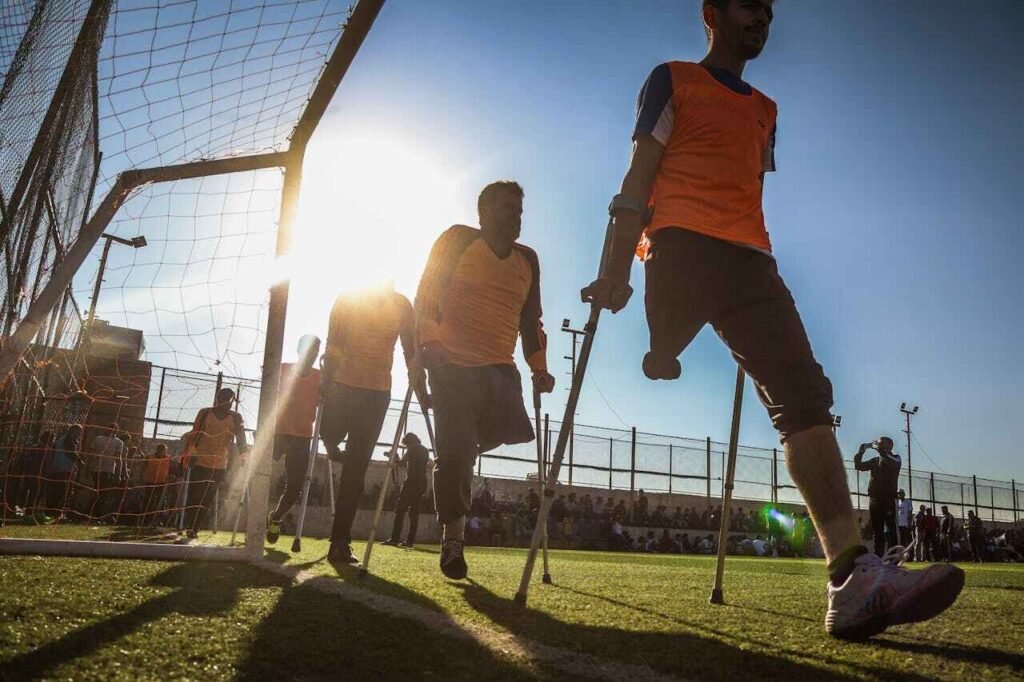
At RoboBionics, we believe prosthetics should be life-changing, not life-draining. That’s why we created Grippy™—a bionic hand that’s powerful, easy to use, and made in India.
While many imported bionic hands cost more than ₹10 lakh, Grippy™ is available for just ₹2.15 to ₹3 lakh. We kept the price low without cutting corners. Our hand is built with 60 out of 64 parts made right here in India, keeping it accessible and reliable.
It’s not just affordable—it’s smart. Grippy™ uses your own muscle signals to open, close, and control the hand. It even gives you feedback, so you know what you’re touching. Whether you’re holding a phone, typing on a laptop, or cooking dinner, Grippy™ moves with you.
Personalised Care for Every User
We don’t just ship a product and disappear. From day one, our team supports you through every step—demo, fitting, training, and follow-up. We partner with clinics across Delhi NCR to make sure your experience is smooth and supportive.
If you or someone you love is considering a bionic hand, don’t just wonder—try it.
Book a free demo at www.robobionics.in/bookdemo. You’ll meet a team that listens, cares, and walks this journey with you.
We’re not just making prosthetics. We’re helping people reclaim their lives.
Ready to Start Your Journey?
Living with limb loss is hard. But with the right help, it’s also the beginning of a new chapter. In Delhi NCR, you have access to expert clinics, cutting-edge prosthetics, and caring teams who want to see you succeed.
Whether you need a leg, a hand, or just some good advice—start today. Ask questions. Visit clinics. Book a demo. Talk to others who’ve walked this road.
And remember: you don’t have to go through this alone.
RoboBionics is here to support you—with care, technology, and heart.
Visit www.robobionics.in or book your demo here.
Let’s take the next step, together.



